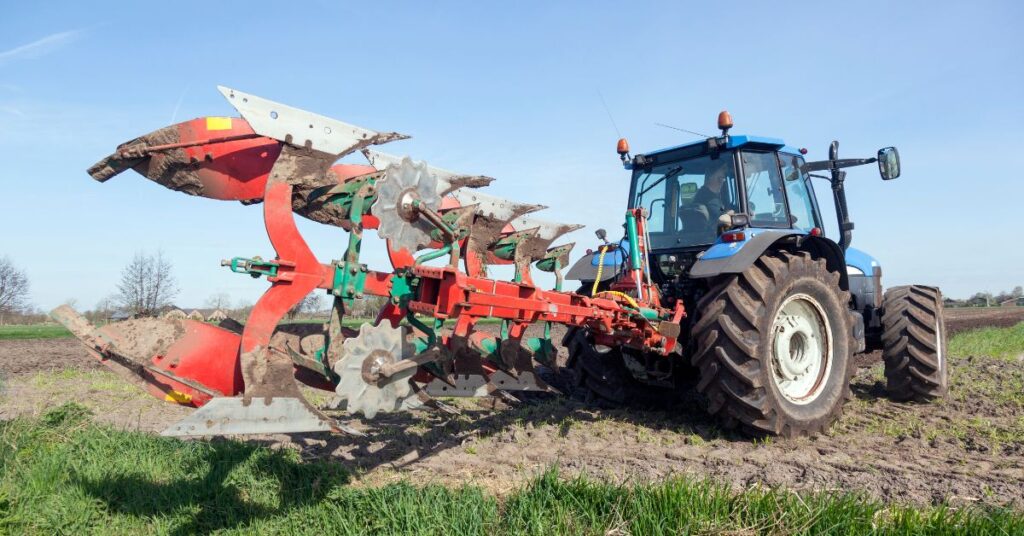Agricultural machinery operates in harsh environments including high stress forces, intense vibration, and high exposure to corrosive elements. Equipment like tractors, combines, planters, and harvesters face elements like this every time they’re used. A single fastener failure during can lead to thousands of dollars in downtime, especially during harvest season. For manufacturers and maintenance crews in the agriculture industry, the importance of selecting the right fastener is so important. There’s a high importance on reliability to prevent field failures.
The Main Challenges for Ag Fasteners
- Extreme Corrosion from Chemicals & Elements: Depending on the company and type of machinery, equipment is routinely exposed to fertilizers, pesticides, manure, heavy mud, and/or road salt. Here in Canada there is also seasonal changes to take into account. Winter will bring snow and frost on the equipment. Even if the equipment is not used during winter months, it must be stored properly to prevent corrosion. Along with this there’s high moisture from rain and dew which results in rust and weakens joints. The solution is specialized coatings beyond standard plain or zinc plated fasteners. Options like hot dipped galvanizing, zinc-nickel, or zinc flake coatings are available. These provide thick protection that can withstand years of chemical and environmental resistance. Stainless steel is also used for its corrosion resistant properties.
- High Vibrations & Dynamic Loads: Harvesting, tilling, and planting involves continuous heavy operations over rough terrain. This generates a lot of vibrations that can cause standard nuts and bolts to loosen over time. Locking fasteners are mandatory for this type of equipment. Some common types are all metal locknuts, nylon insert locknuts, and wedge locking washers. These can be used to prevent vibration loosening overtime and extend the time between the fastener maintenance.
- Heavy Loads and High-Strength Requirements: Components like plow bolts and wheel assemblies must be used to handle high shear and tensile forces. Standard bolts simply won’t last in these situations. High-tensile strength fasteners are essential. Look for Grade 8 (or metric Class 10.9 or 12.9) hex cap screws and bolts. These materials are specifically heat treated to withstand the high stress of heavy equipment in agriculture.
Common Fastener Types in Farm Equipment
These are the most popular types of fasteners that are important in the agricultural industry:
- Plow Bolts: These have a low-profile, countersunk head that sits flush to the surface to reduce wear. These are frequently Grade 8 strength and can be either domed or flat head. They’re used in equipment like plows, cultivator shovels, and direct-engaging parts.
- Carriage Bolts: Typically used for fastening wood to metal or thin sheet metal components, like grain wagon beds. The square neck under the dome head prevents rotation during nut tightening and while using the equipment.
- U-Bolts: These secure pipes, tubing, and suspension leaf springs to the frame. Typically these are round in shape to fit over a pipe but they can also come in square shaped. These are used to clamp components tightly.
- Locknuts: These are used on any equipment that is subject to vibration, like engine mounts or gearboxes. They include a mechanism to resist loosening. There are many types of locknuts, check out our other blog post here to learn more about those specifically.
- High Strength Hex Bolts: Used for critical structural joints, engines, and gear assemblies. In the ag world, these are typically required to be Grade 8 (imperial sizes) or Class 10.9 (metric sizes) or higher for maximum tensile strength.
The Future of Ag Fasteners
As farming technology advances, so do the fastener requirements. To improve fuel efficiency, manufacturers are looking to reduce the weight of every component. The weight also helps with things like reducing soil compaction. This is driving demand for high-strength, low weight fasteners which includes aluminum alloys and optimized designs that maintain strength with less material.
Additionally, the rise of precision agriculture and robotics means more sensors. Fasteners embedded with sensors can monitor real-time bolt tension on critical components which allows for predictive maintenance that prevents breakdowns during peak operating hours.
Choosing the right fastener means the difference between a successful harvest and costly downtime. Are you looking for someone to supply you with these fasteners? Contact our sales team today to get a quote!
